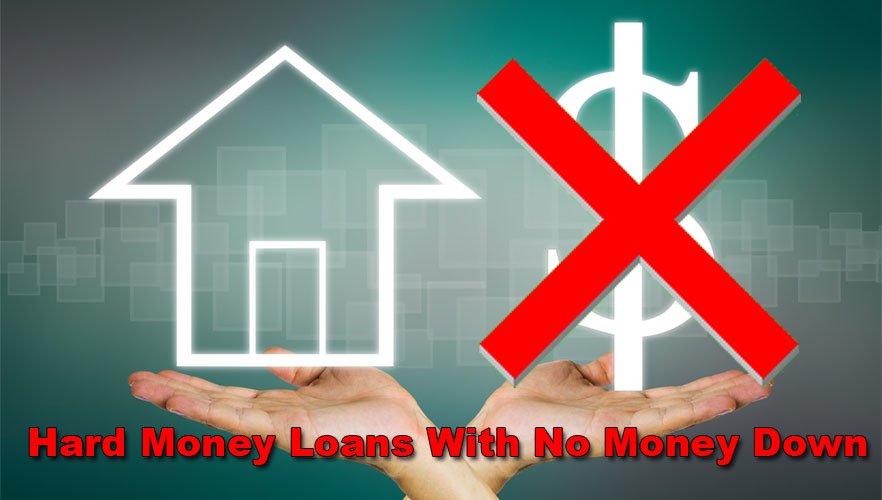
To get money to flip a house there are 5 ways to get the financing you need. The first step is to evaluate your financial standing, then either find an investment partner, get a hard money loan, apply for a private money loan, or seek a traditional bank loan.
Today’s investors are realizing the incredible opportunity that fixing and flipping houses offers.
There are great ways to get the money you need to start fixing and flipping houses.
This post will line out the best ways to get money to flip houses to get you started.
5 Best Ways To Get Money To Flip A House
Depending on your individual situation one of these 5 ways to get money to flip a house will be the best. Flipping houses will involve purchasing a low cost home which are often foreclosures, fixing it up and then selling it for a profit. It is something that has a lot of risks as well as plenty of rewards. There is also a lot of work that is involved with preparing a house to go on the market. If you have become interested in flipping homes but don’t have much money for a down payment, there are some other options out there that will let you enter a house flipping market.
Table Of Contents:
1. Evaluation of your financials
- Evaluating your risk tolerance.
Being able to Flip a home for profit will involve various costs, which include the down payment, interest payments, real estate closing costs, contractor fees, permits, inspections, property taxes, and mortgage. These costs will often add up quickly, and your flipped house may not sell at a profit. Before you ever decide if you want to flip a house, you need to ask yourself:
- What will you do if the house doesn’t sell quickly? Would it be possible to use the home as a rental property? If you don’t have a reasonable back up plan to use if something goes wrong, then you may want to reevaluate the plan.
- Are the potential profits worth the risk of a big loss? In 2015, houses that were priced below $50k saw negative returns while homes that were priced between $100k and $200k had an average gross return of 44%. So, keep in mind that selling a house in which you haven’t lived in may also have high tax payments, which could cause the profit margin to lower a lot.
- Can the investment partners deal with the risk of a potential loss?
- Have you done research on the local real estate markets, permits and remodeling costs? In order for there to be a successful house flip, you will need to educate yourself on the local home pricing, responsible contractors, real estate regulations and school districts.
-
Consider sweat equity and value of that work that you can provide.
Sweat equity is the amount of value that you may add to the home due to your own labor. For instance, if you are a licensed plumber or skilled technician, then you may be able to complete a few home repairs on your own. This cuts down on the overhead and reduces the amount of money that you need to borrow.
- Ensure that you are taking into account how much time you will be working on the flipped house. Time is valuable, and flipping a house can take months of work. Consider if other ways of spending your time may be more enjoyable or lucrative.
- Ensure that you are adhering to local regulations when you do home repairs yourself. Discuss the plans with local regulations board or a real estate attorney if you need approval for any repairs or construction.
- Will your partners put up the financial stake while considering if your sweat equity has value? If so, how much value when compared to hard cash?
-
Know your credit score.
If you don’t have money for a flipped house, you will need to get a loan to cover the initial costs. No matter who the lender is such as a private lender, a partner or a bank, you will have to demonstrate that you have the capability of repaying the loan. Your credit score will reflect on your credit history, and your ability to pay off loans as well as your overall debt load. The better the credit score, then your chances will be that you will be able to secure a loan at affordable interest rates.
- There are a few credit rating systems, but normally the general credit score is between 300 to 850. The higher the score, the better your credit is.
- You can receive a free credit report with your credit score, every 12 months by going to https://www.annualcreditreport.com/index.action.
-
Improving your credit score.
If you have a credit score that is too low for you to be able to secure a loan for house flipping, then you may want to take a bit of time to improve your credit score. This may take some time, but it could be worthwhile in the long run. The better the credit score, then you may actually be able to handle any type of potential loss from your planned house flipping. In order to improve your credit score, you may:
- Pay your debts off in a timely manner. If you don’t have a good debt payment history, then you won’t get a decent loan for any type of flipped house.
- Keep debt to a minimum amount. Avoid maintaining a balance on your credit card if you can.
- Only have a credit line when needed. Do not have more credit cards than you need for your day to day life.
- Protect your identity. Be sure to monitor your credit card transaction and your credit rating to ensure that your identity hasn’t been stolen by a hacker or thief. Take reasonable safety precautions to protect your personal information. For instance, don’t log on to your online banking system unless you are on a password protected, secure network.
-
Talk to financial advisors.
Financial advisors are able to look at your current financial situation and then help you to determine just how much risk you can afford to take on during a house flipping investment. Your financial advisor may help to prepare a plan for being able to meet expenses if the house takes a long time to sell or if it needs to have extra repairs done.
-
Make a business plan.
To be able to successfully flip a house, you will need to have made your decisions based on research and logic, and not emotions. Before you start the process of finding a lender and buying the house, it is best that you have a solid business plan. This plan should keep you on track for making a wise investment as well as provide confidence to any potential lenders and partners that can help to make a profit. Your business plan needs to include:
- Maximum purchase price of the flipped home.
- List of in demand neighborhoods where your search is targeted. Pay attention to neighborhood safety, school districts, and amenities proximity like public transit and shops.
- Maximum cost of remodels and repairs that you can afford.
- List of affordable, licensed and dependable contractors for successful repairs.
- Reasonable estimate for After repair value of the home. The initial price should be no more than 70% of the homes after repair value.
- A sense of who the buyer is and what they are wanting. Will the buyer be retired? A young businessperson? A newlywed couple with children? Depending on the neighborhood, your buyers may want different things out of a home. Consider who the buyer will be and what they will need out of the house. For instance, if you are flipping a house in a neighborhood that has a great school district, you may consider remodeling with young children in mind.
- Specific buyer. In some cases, you may have a buyer lined up before the house is flipped. In this case, the risks are lower than overhead costs.
- Repayment plan for the loan if something goes wrong. Don’t flip a house unless you can meet expenses, even if something goes wrong with the sale. For instance, a buyer falls through, or you discover an issue with the foundation. Build a margin for error within the business plan and brainstorm ways that you can deal with the sale delay or unexpected expenses.
2. Finding An Investment Partner
-
Locate an investment partner.
A common way for house flippers that are inexperienced to enter into this market is to find investment partners. This is important for those who don’t have money for a down payment or initial repairs. Investment partners will supply some or even all of the start up cash in exchange for a part of the profits.
- You may want to consider finding a partner who has a lot of liquid cash but no interest in doing the legwork of refinishing or purchasing a home. While the partner supplies the cash, you are supplying the labor and know how.
-
Network Actively.
To be able to find an investment partner, you will need to have various professional and personal contacts in the community. Spread the word that you are interested in an investment opportunity with a partner. Some ways that you can find a potential partner do include:
- Looking for any active investors in real estate. Contact successful, and experienced investors of real estate who may take a chance with you.
- Join real estate investment clubs. Most communities will have local chapters. Once you join, you will have access to locals who are wanting to share your enthusiasm and interest.
- Join meetup groups. Meet up groups are social clubs that will sometimes have specific themes such as real estate. Use meet up groups to extend your social network.
- Spread the word through friends and family. Discuss your dream of house flipping with those who are in your social network. They may be able to put you in touch with others who have your interests or are looking to invest in real estate.
- Create a real estate investment club. If your neighborhood doesn’t have one, then form your own chapter. Advertise on Craigslist and through various meet up websites to find investors.
-
Consult with an attorney.
Whenever you enter into an investment partnership, it is vital that you don’t rely on verbal agreements. Ensure that your transactions are within a signed contract. Consult with a real estate or business attorney to make sure that everyone is okay with the arrangement. Make sure that everything is worked out in advance:
- Who covers what costs
- Who covers potential liabilities and debts
- How profits will be split
- Who will do certain tasks like contractor hiring
- Be aware of security laws that are in place to help regulate the promotion of various types of investments and the overall possibility of lawsuits by investors, if the events do not happen as planned.
-
Take only one deal at a time.
There are some real estate partnerships that work out great, while others may fail. Don’t put yourself into a long term partnership until you know how well that you will work with your partner. Take it one house a time and evaluate if the partnership has the potential to be a lasting and strong one. Also take into account if the financial return will work as expected.
3. Apply For A Hard Money Loan
-
Research Hard money lenders.
Hard money lenders are companies that borrows money from various individuals at a single interest rate and loans the money to other individuals at a higher interest rate. There are a lot of companies that specialize in funding real estate investments like flipped houses. Use internet directories or your social network to locate a hard money lender in your area.
-
Recognize added costs of hard money loans.
Hard money loans are likely to be an easy loan to get for a first time home flipper who doesn’t have liquid cash. But, it is also a risky option. The interest rate from a hard money loan is much higher than your average bank mortgage of 8 to 15%. That can really cut into the profits of a flipped house. Read How To Use Hard Money For Fix and Flips.
-
Collect financial documents.
Before a lender will give you the cash, you will have to provide them with proof about your financial stability as well as plans for flipping the home. They will want to look at tax records, credit ratings, as well as pay stubs. Be sure to have your documents ready to show your lender that you are worth the investment.
-
Pay initial 2 to 10% fee.
This is another added cost of hard money loans. It is often referred to as points and many of the fees are between 2% and 10% of the mortgage cost of the house that you will be flipping. This money will provide your lender with a bit of security and will serve as a demonstration of financial viability.
-
Flip the house quickly.
Many hard money loans will be limited to the purchase as well as rehabilitation of the property and/or construction and may last from 6-24 months. Hard money loans are not best for long term investments due to the high fees that are involved. It is best to use a hard money loan for properties that you can turn around quickly to make sure that you aren’t paying through the roof interest rates.
4. Apply For A Private Loan
-
Consider a private lender.
Private lenders are people who have liquid money to spare who can lend you money at a certain interest rate, also known as “Private Money Loans“. Unlike a real estate partner who will split the profits, a private lender will charge and interest rate before giving you cash. In most case, the interest rates are much lower than hard money loans, but a private lender may be harder to find.
-
Tap into your social network for private lenders.
In most cases, you may find a private lender through your social network. If you someone who has liquid cash sitting around, you may be able to borrow money and then pay them interest. In the best scenario, everybody will win. Your lender will earn extra interest and you will make profit from the house.
-
Be aware of any potential risks.
If you are going to use a private lender, then ensure that you both are aware of the risks of the transaction. Consider what may happen if you don’t profit from the house. Will you still be able to make interest payments? Think the options through before going to a private lender to be able to preserve the relationship with that person, you will need to pay them back in a timely way.
-
Trust is key.
Don’t take advantage of a private lender if you want to work with them continuously. Trust will be a big part of a private loan and you will have to show that you are able to hold up your end of the agreement. If you are successful, your lender may be willing to help finance any future real estate investments.
5. Try To Get A Bank Loan
-
Ask the bank for a loan.
The option is less likely to happen on your first flipping experience, but it is worth trying. If you have a solid business plan and a good credit score, your bank may be able to provide a loan to purchase a house to flip. The interest rates may be higher than normal mortgages with a 20% down payment, but it is lower than a hard money loan.
- Banks are may lend construction funds if you are able to provide a clear lien for the property.
-
Discuss your business plan with the bank.
If you have any hope for securing a bank loan, you will need a very solid business plan. Ensure that you have discussed your research with your bank to see if they will consider the house a good investment.
Method 6 – Using your own assets
-
Evaluate your current assets.
If you don’t have a lot of liquid cash to flip a house with, you may still have assets that may help you to gain credit lines to purchase a low cost home. Examine your home, your credit lines and retirement accounts to see if they can be tapped into for a down payment.
-
Tap into your IRA.
Your IRA is a retirement vehicle. There are some large tax penalties when it comes to withdrawing the money before you are 66. But, there are exceptions for first time home buyers. You can use up to $10k of your IRA to purchase a home. Talk the option over with your financial advisor to ensure that you will be using the money right and that you will not have penalties.
- Be aware that withdrawing money from the IRA could hurt the growth potential over a long time of your account. Be aware of the risks that are involved with taking money from your account too early.
-
Consider a home equity line of credit.
Home Equity Line of Credit is an option if you already own property. This gives you a fast source of cash, and you only have to pay the interest on the money that is borrowed. For instance, if you have a home equity line of credit for $75k, but you only borrow $10k, then you will only pay interest on the $10k.
- Be aware that home equity line of credit interest rates is higher than private lender loans.
- Be careful. If you don’t repay the loan in a timely manner, you could lose your home.
-
Consider using credit cards.
Credit cards are a source for quick cash, as long as you are planning to pay them off quickly. The interest rates for credit cards can be between 18% and 24%. You are also not placing other assets are risk, like with a home equity line of credit. You may want to consider using credit cards for the lower stake purchases during your home flipping, such as to purchase various building materials from various home good stores.
Finding Hard Money Loans In Arizona
If you are looking to flip houses in Arizona, apply for a hard money loan with Brad Loans by eMortgage, Inc.






